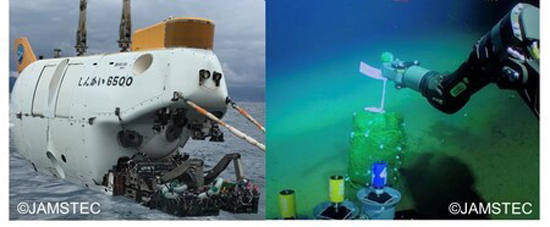Microorganisms decompose plastic in the deep sea University of Tokyo and others elucidate this for the first time in the world

University of Tokyo and others are collaborating to collect various biodegradable plastics from the coast of Misaki, Kanagawa Prefecture (757 meters deep), and Shizuoka Prefecture. off the coast of Hatsushima (855 meters deep), Myojin Knoll (1292 meters deep) near the Izu-Ogasawara Island arc submarine volcano (1292 meters deep), the abyssal plain of the Kuroshio extension basin (5503 meters deep), off the coast of Minamitorishima, the easternmost tip of Japan (5552 meters deep) For the first time in the world, it has been revealed that microorganisms decompose all parts of the deep sea.
Numerous microorganisms were densely attached to the surface of the biodegradable plastic, and over time rough irregularities formed on the sample surface, indicating progress in biodegradation.
Although the rate of biodegradation in the deep sea slows down as the water gets deeper, it was also confirmed that biodegradation occurs in all deep seabed areas. Calculations estimated that at a depth of about 1,000 meters on the ocean floor, the plastic bags made from biodegradable plastic used in this study would biodegrade within three weeks to two months.
This time, through bacterial flora analysis (16S rRNA gene amplicon sequencing) and metagenomic analysis, they succeeded in discovering many new degrading microorganisms that can degrade biodegradable plastics from the deep sea. Furthermore, it has been revealed that the decomposing microorganisms that they have discovered live in various seabed sediments around the world, and biodegradable plastics that have been demonstrated to decompose can be decomposed in any deep ocean in the world.
The results of this research are expected to advance the research and development of biodegradable plastics as an excellent material that will help reduce future marine plastic pollution.
